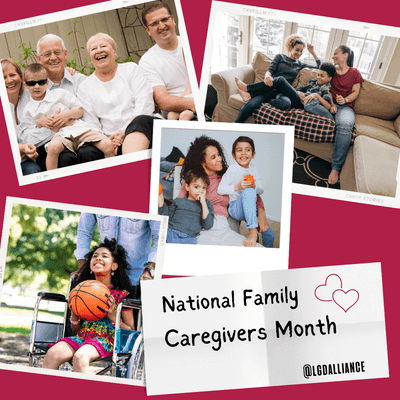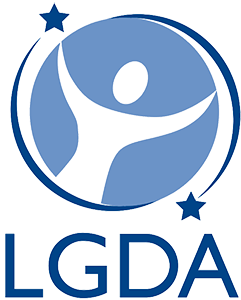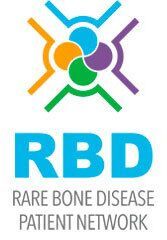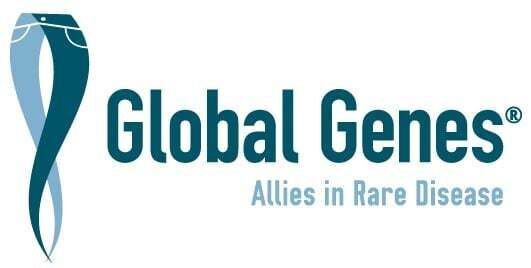
Caring for a loved one with a complex lymphatic anomaly is both a rewarding and challenging journey. As a family caregiver, your health and well-being are equally important, yet it can often feel difficult to prioritize yourself while managing your caregiving responsibilities. In fact, over half of those providing care in the U.S. don’t recognize themselves as caregivers, which means many miss out on valuable resources to help alleviate caregiving stress.
In recognition of the selflessness and dedication of caregivers across the nation, former President Joseph R. Biden Jr. proclaimed November as National Family Caregivers Month, calling on all Americans to honor those who give so much to support their loved ones.
“How we treat our young children, aging parents, and loved ones and how we value those who care for them are fundamental to who we are as a Nation. During National Family Caregivers Month, we pledge to get every family caregiver in this country the same kind of relief, respect, and support that they give so selflessly to others.” – Joseph R. Biden Jr., Former President of the United States of America
10 Top Tips for Daily Self-care and Caregiving Support
1. Connect with Other Caregivers
Joining a community of other family caregivers can be an incredible source of support. Online communities and support groups offer a space to share experiences, exchange tips, and find emotional relief. Connecting with others who truly understand the challenges of caregiving can provide comfort and practical guidance, making your journey a little easier.
2. Prioritize Your Health
To care for your loved one effectively, your health must be a priority. Simple self-care routines focusing on nutrition, exercise, and sufficient rest can help keep you strong and resilient in the face of caregiving demands. Maintaining your physical health is vital to avoid burnout and ensure you can continue providing quality care.
3. Accept Help
Caregiving can be overwhelming, but you don’t have to handle it alone. Accept help when it’s offered, and don’t hesitate to suggest specific tasks or errands that others can take on. Whether it’s picking up groceries, assisting with household chores, or simply spending time with your loved one, delegating responsibilities eases your workload and reduces stress.
4. Communicate with Healthcare Professionals
Being proactive and clear when communicating with healthcare providers can greatly ease the caregiving process. Prepare questions and concerns in advance, keep track of health updates, and seek clarity on treatment plans. Effective communication helps you stay informed, empowers you to make the best decisions for your loved one’s health, and strengthens your confidence in managing their care.
5. Schedule Respite Breaks
Taking regular breaks is essential to avoid caregiver burnout. Even short breaks can provide valuable time for you to recharge and engage in activities that bring you joy and relaxation.
6. Stay Alert to Signs of Depression
Caring for another person can be emotionally taxing, and it’s not uncommon for caregivers to experience feelings of depression. If you notice persistent sadness, fatigue, or changes in your appetite or sleep, consider seeking help from a mental health professional. Addressing these symptoms early can help you maintain your well-being and avoid potential impacts on your caregiving role.
7. Explore New Technologies
In recent years, many technologies have been developed to assist caregivers with tasks like health monitoring, medication management, and communication. From smartphone apps to wearable devices, exploring these tools may simplify caregiving tasks and improve your loved one’s care while making things easier for you.
8. Organize Medical Information
Keeping your loved one’s medical information organized and easily accessible is key to effective caregiving. Use tools like a patient file checklist to ensure all medical documents, test results, and treatment plans are up-to-date. This organization helps streamline communication with healthcare providers and prevents last-minute scrambles for important documents.
9. Ensure Legal Documents Are Prepared
Legal preparedness is essential in caregiving. Make sure important documents, such as power of attorney, health care proxies, and wills, are current and accessible. Using a legal document checklist can be helpful in keeping everything in order, giving you and your loved one peace of mind.
10. Recognize Your Dedication
Remember to give yourself credit for the hard work and dedication you bring to your caregiving role. Recognizing the positive impact you have on your loved one’s life helps sustain your motivation and resilience. Caregiving is demanding, but the love and commitment you show are invaluable.
Self-Care Is Key to Effective Caregiving
Balancing your role as a caregiver with self-care is a challenge, but it’s one that can be managed with the right strategies. Seeking support, maintaining your health, and taking time for yourself are crucial to sustaining your caregiving efforts. By embracing these tips, you’ll build a foundation for resilient caregiving that allows you to support your loved one while taking care of yourself. Remember, you’re not alone, and resources are available to help make this journey smoother and more rewarding.
Learn more about Caregiver Action Network (CAN): https://www.caregiveraction.org/icare/







